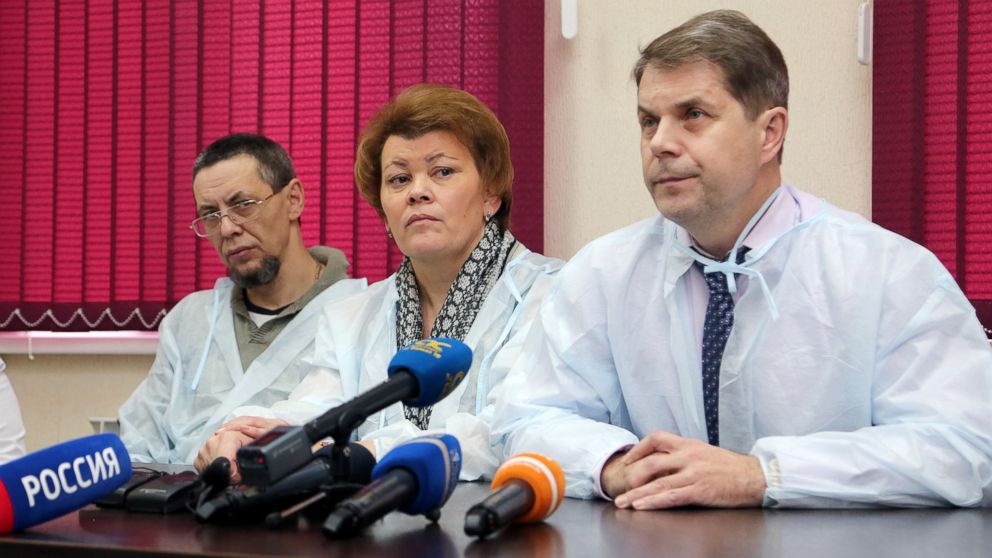72 Dead in Siberia After Drinking Counterfeit Alcohol
Police have arrested 12 people over the production and sale of the oil.

— -- Seventy-two people in a Siberian city have died after drinking tainted bath oils, in one of the worst poisonings in Russian history.
There are fears the death toll may climb further, with 33 people still hospitalized, according to authorities in the city, Irkutsk, in Russia’s far east.
Most of the victims, who were all from one neighborhood, were poisoned by drinking a counterfeit bath oil, police said. Although marked not for consumption, it was being drunk regularly as a cheap substitute for vodka. According to police, a batch was produced containing methanol, a highly toxic type of alcohol.
Irkutsk’s authorities have declared a state of emergency in an effort to halt the poisonings, launching raids and seizing tons of the bath oils and counterfeit spirits. Police have arrested 12 people over the production and sale of the oil and said they may have found the illegal factory that made the lethal batch. The Russian state news agency Tass reported today that authorities feared the cause of the poisonings may not be limited to the bath oil; counterfeit branded vodkas could have also played a factor.
Irkutsk’s Mayor Dmitry Berdnikov said authorities believe they have nonetheless succeeded in cutting off the source of the poisonings, with no new cases reported in the past two days.
The catastrophe has prompted horror and outrage in Russia, recalling for many the darkest periods of the 1990s, when surrogate alcohols caused large numbers of deaths and mass poisonings were not uncommon.
Rising living standards and a crackdown on counterfeit spirits saw such incidents largely disappear. But in the past two years, ordinary Russians’ living standards have been adversely affected by an economic crisis prompted by low oil prices and Western sanctions. Prices have risen sharply, pushing people into poverty, particularly in provincial areas such as Irkutsk. Alcoholism in Russia remains a dire problem, with half a million Russians dying from alcohol-related causes in 2012, according to a study by the Organization for Economic Co-operation and Development — accounting for 30 percent of deaths in the country that year.
A rise in the price of vodka has been accompanied by a surge in the sale of substitute alcohols. Russia’s Finance Ministry announced earlier this year it would take steps to lower the prices of the cheapest vodkas to discourage people from drinking dangerous alternatives.
The poisonings in Irkutsk, though, illustrate how desperate the situation has become for some of Russia’s poorest residents. The cheapest vodkas are priced at about $3 for a half-liter bottle, while the bath oil costs only 65 cents or so.
Russia’s President Vladimir Putin on Wednesday intervened in response to the disaster in Irkutsk, ordering the government to strengthen laws regulating the sale of products such as perfumes, lotions and cleaners that contain high levels of alcohol.
“We have to raise excise duty, unfortunately or fortunately, on products containing alcohol, so that there won’t be these little bottles for three cents,” Putin said in comments broadcast on state television. “People are dropping like flies. It doesn’t matter if cosmetics will be more expensive in the end. People’s lives cost more.”



